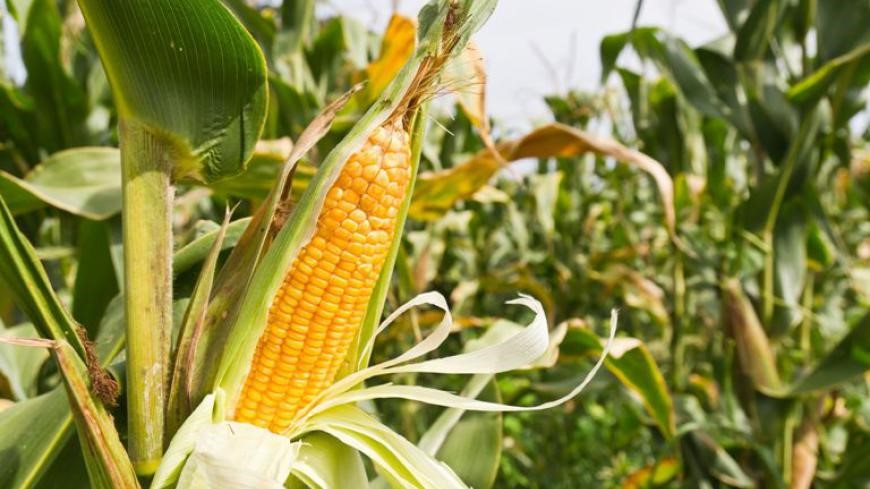Maize is popularly called “corn” and is one of the most versatile emerging crops. The maize crop contains wider adaptability under varied climatic conditions. It is called the queen of cereals worldwide. Corn or maize is the third most prominent food crop after rice and wheat in India. Farmers grow maize throughout the year in all states of the country. You can use it for many purposes such as food grain, sweet corn, fodder for animals, baby corn, popcorn and also green cobs. Corn flour is consumed widely in Indian cooking.
Corn or maize serves as a raw material with thousands of industry products consisting of starch, alcoholic beverages, starch, oil, pharmaceuticals, food sweeteners, food cereals, paper industries, film, gum, textile and packaging etc. Farmers can cultivate maize/corn crops in north India. Corn or maize growing states are Rajasthan, MP, Uttar Pradesh, Panjab, Jammu and Kashmir, Himachal Pradesh and Bihar. Andhra Pradesh and Karnataka states are the major producers of corn in south India. In the production of corn, MP got the first rank in India.
Process of Maize Farming in India
Maize cultivation is very profitable for all Indian farmers; So we provide the necessary information about it. Apart from this, you must also know the main factors when you start maize cultivation on your farms. Tools play a major role while farming. Rotavators, cultivators, harvesters and tractors are important tools in cultivating maize.
That’s why you should choose the best equipment, and tractors are the most prominent among them. You can choose the Captain tractor for maize cultivation. You can also choose from any other tractor model like Sonalika tractor, Powertrac tractor, and many more.
Corn Farming – Climatic Requirements
Maize is a predominantly rainfed Kharif crop in India. This crop you can sow just before the onset of the monsoon. The crop generally grows well in temperatures of 22 °C to 30 °C, although it can tolerate temperatures up to 35 °C. The maize crop is affect by frost, so you can grow it where at least 5 frost-free months are available in a year. However, it requires at least 50 – 90 cm of rainfall. Therefore, cultivation of this crop is not recommend in areas with more than 100 mm of rainfall.
Maize Farming – Soil Requirements
Farmers can cultivate corn or maize successfully in a variety of solids, ranging from clay loam to sandy loam and then black cotton soil. However, for better corn crop yield, you should consider the soil with good drainage and contain a high water holding capacity. Because well-drained soil is best with a pH of 5.5 to 7.0, that is preferable for corn farming. Soil testing is recommended to detect any nutrient deficiency in the soil. Any deficiency can make up by adding good organic matter or compost during land preparation.
Commercial – Hybrid Varieties of Maize
There are a number of hybrid commercial maize varieties available from seed companies, allowing you to select the right high yielding hybrid based on local conditions. Some of the hybrid varieties are Sona, Kisan, 30R77, Himalayan 123,30V92,30B07, Hi-Starch, 32T25,31T15, Ganga-1, Ganga-101, Ranjit, Deccan, and VL 54, Vijay, Amber, Jawahar, Vikram and Ganga-5, Ganga-Safe-2, Ganga. -4, Ganga-3.
Maize Farming – Seed treatment and seed rate
For sowing one hectare of field, you require 10 to 11 kg of maize seed. You should treat the seeds with Carbendazim or Thiram @ 2 g/kg of seed for controlling any seed-borne pathogens. One day after seed treatment, the seed should treat with rice ghee mixed with 600 grams of Azospirillum and dried in the shade for 15 to 20 minutes. Azospirillum helps to fix atmospheric nitrogen in the soil.
Maize Farming – Fertilisation and Manure
During the land preparation, apply the Farm Yard Manure. Apart from this, you should apply inorganic fertilisers such as 200 kg of urea, 470 kg of superphosphate and 1800 kg of potash per/ha as a basal dose. Twenty days after sowing, should apply urea of 50 to 60 kg. And at 40 days after sowing 50 kg of potash and 120 kg of urea as a top dressing.
Maize Farming – Micronutrient deficiency
Nutrient deficiency in maize affects plant growth, thereby affecting yield. Zinc and magnesium deficiencies are common and occur mostly in the leaves. Apply ZnSO4 @ 20 kg per hectare as basal fertilizer to combat these deficiencies. A magnesium deficiency will cause yellowing of the edges of the basal leaves and between the veins. The deficiency of “Fe” or “Iron” will cause the entire plant to turn yellow. After sowing the maize seeds to combat this deficiency, mix the micronutrient mixture at 63 per hectare with 45 kg of sand.
Irrigation in Maize Farming
Farmers require immediate irrigation for the field as soon as you do the sow. Thereafter, give irrigation on the 3rd or 4th day, depending on season and soil type. Generally, less irrigation is recommended for maize crops for 25 to 30 days, followed by irrigation once a week. During the initial stage of this crop, you should avoid the stagnation of water , and there is good drainage.
Maize Farming – Weed control or Intercultural Operations
For the maize crop, you require at least 2 hands of weed. After sowing, one weed lasts 20 to 25 days, and another one lasts 40 to 45 days. After completing the weed, you should apply the fertilizer as a top dressing and engage with the earthling up operation. To control weeds in the maize field, you should mix the 1000 litres of water with spray Atrazine 500 grams and irrigate on the third or fourth day.
Harvesting of Corn or Maize
You should harvest when the outer shell of the cob turns green to white. Harvesting can also be done by hand, and seed separation machines are available.
Equipment Requirement
With information about maize cultivation, you should also know the equipment that will help to boost the yield. Tractors are an important segment in every cultivation. However, the Powertrac tractor is the most effective tractor for corn farming. You can also choose Swaraj Tractor, Eicher tractor, and many more.
For more information regarding corn/maize farming, stay tuned with us.


